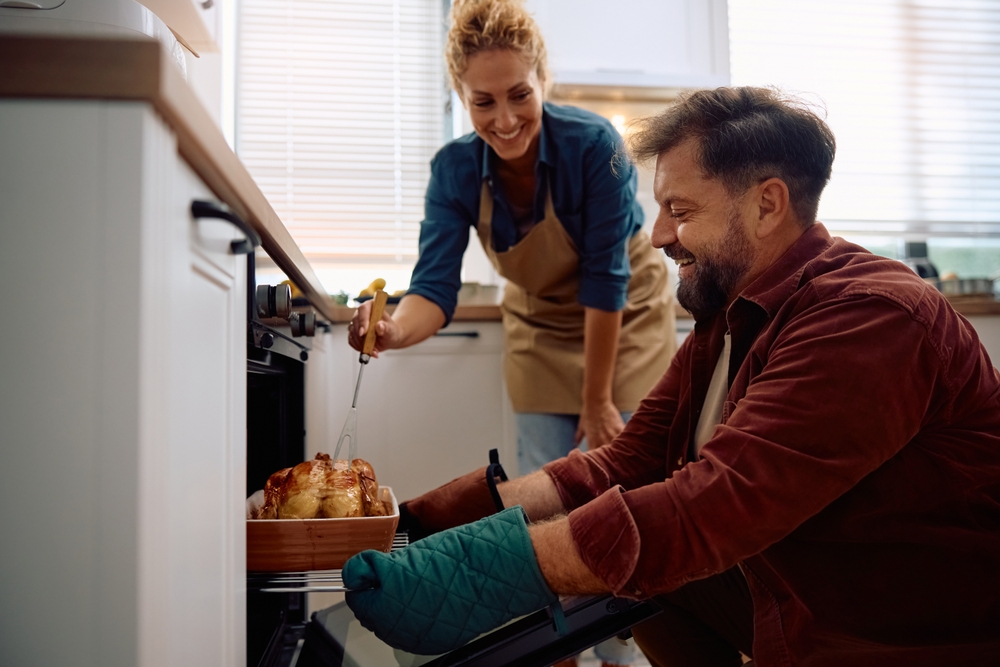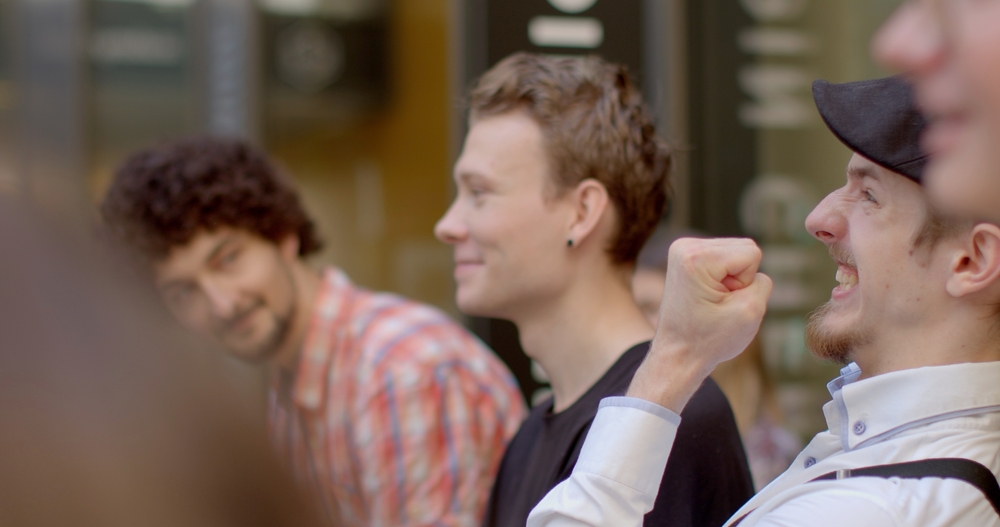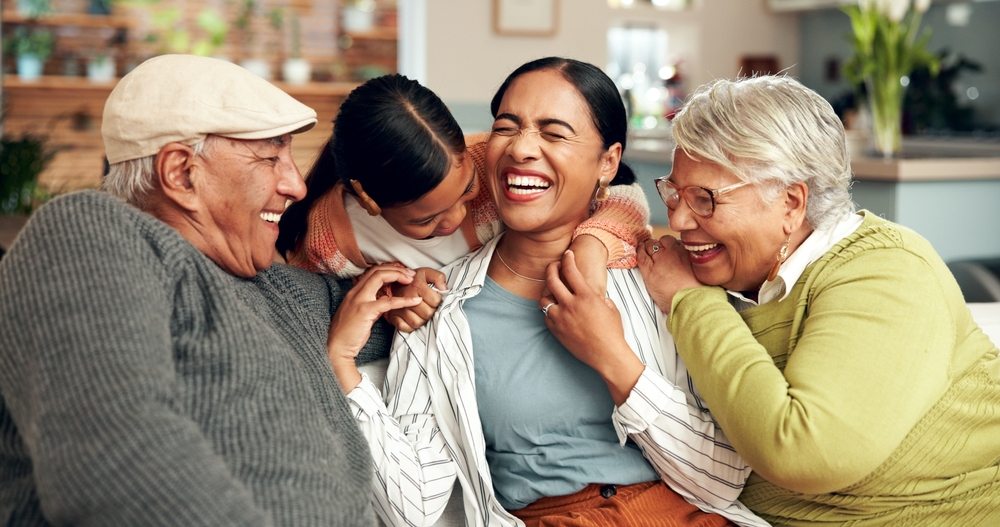Celebrating Sober: How to Make the Most of Your First Holiday in Recovery
The holiday season is upon us, and everyone is gearing up to celebrate. That means lots of parties and gatherings with alcoholic drinks and drugs. But if you’re just starting your sobriety journey, that can be a bit of a challenge. Temptations are running high, and the pressure to "just join in" can feel relentless. Celebrating sober may be an entirely new thing to you in your addiction recovery, but it's certainly not impossible.
You’ve worked so hard to get here. You’ve made it through the tough moments and chosen a new path of sobriety. Yet, as the holidays roll around, you might worry about:
- How to handle the festivities without alcohol
- How to stay true to your goals
- How to enjoy this season sober
- How to handle pressure or say no
But the good news is that there are ways to join in the fun without returning to your old habits. Celebrating sober doesn’t mean you have to miss out on the joy, connection, or spirit of the season. In fact, it can be an opportunity to create deeper, more meaningful experiences while staying true to yourself and your goals.

Let’s dive into how to make this your best holiday season yet—sober and thriving.
Shift Your Focus from Drinks to Food
Make the holiday all about the food. Seriously, there’s so much amazing food to enjoy this time of year. Instead of worrying about not having a drink, dive into the treats, meals, and special dishes you might only get once a year. Try to focus on the flavors and truly enjoy what you’re eating, this will make celebrating sober a much more achievable feat.
You could make food an adventure for yourself. If you’re going to a party, bring a dish you love or try a new holiday recipe to share—it gives you something to look forward to and keeps the attention off drinks. Plus, people love good food, so this shift keeps the focus on celebrating together and connecting over something you can all fully enjoy. And let’s be honest—food is much more satisfying than any drink.
Know Your Triggers and Have Support on Standby
This one’s big: know what might set you off and have a backup plan ready. Holidays can bring up many emotions and memories, so think about what situations or people might make you feel like reaching for a drink. Is it a certain party, a specific person, or maybe even a feeling of stress or loneliness? Just being aware of these triggers gives you a lot of power to overcome them.
And don’t be afraid to lean on your support system. Let a friend, family member, or someone from a support group or a member of a 12 step program, who knows that you might need to check in with them. It could be a quick text or a phone call, just something to keep you grounded if things get tough.
Sometimes, knowing you have someone on standby who “gets it” is enough to help you feel strong and stay on track. It’s like your safety net. Having that go-to person makes all the difference, especially when you’re in a pinch.
Bring Your Non-Alcoholic Beverages
Bring your own non-alcoholic drinks to gatherings. It puts you in control and ensures you always have something to sip on that’s alcohol-free. It keeps you from feeling left out and removes the awkwardness of “what should I drink?” Plus, there are so many delicious alcohol-free options out there these days.
You can bring a fun mocktail, sparkling water, or even a festive punch you made yourself. This way, you won’t feel left out, and you’ll have something in hand that makes you feel comfortable and confident. You might even end up being the hit of the party when people want to try what you brought!
Find Joy in Spending Time with Loved Ones

The best part of the holidays? The people. This is your chance to soak up quality time with the ones you love, completely present and in the moment. Without alcohol, you’ll find you remember all the little moments, conversations, and laughs.
Try to be there with your family and friends, whether that’s playing a game, cooking together, or just catching up. You’ll find a new level of connection and joy—and that’s what this season is all about.
Create New Holiday Traditions
One of the best parts about celebrating sober is the chance to create new holiday traditions that mean something to you. This is your time to reimagine the holidays in a way that feels special and true to who you are now. Maybe that means a morning hike on Christmas Day, sober cruises with peers, baking cookies with family, volunteering, or even a movie marathon night.
You get to build new memories and bring in things that make you feel genuinely happy and connected. Traditions like sober vacations give you something exciting to look forward to each year that has nothing to do with alcohol.
Leave, if Necessary
Remember: you have every right to leave if a situation starts to feel overwhelming or if you notice your relapse triggers coming up. Sometimes, people get stuck in the mindset that they “have to” stay, but you don’t owe anyone an explanation. A quick “I have to go” is all you need. Taking care of yourself is the top priority, and it’s okay to step away if it means protecting your sobriety.
Host Sober-Friendly Gatherings

If you want a gathering where you’re entirely comfortable, why not host one yourself? Throw a sober-friendly party with music, games, delicious food, and maybe some fun non-alcoholic drinks. When you’re the host, you set the vibe, and it takes the pressure off worrying about alcohol.
You’d be surprised how many people enjoy the chance to take a break from drinking and just relax. Here are some tips to make sure your sober gathering is a hit:
- Many people depend on alcohol at parties. Let your guests know in advance that it’s a sober gathering so they come prepared.
- Offer a mix of mocktails, sparkling waters, and fresh juices to accommodate various tastes and preferences.
- Games, board games, a movie marathon, or even a DIY photo booth can keep things lively and focused on the fun, not the drinks.
- Create a comfortable and welcoming environment so it’s easier for everyone to let their guard down and enjoy the night.
- You don’t have to do this alone. Invite people who are supportive of your recovery. These can be peers from 12 step programs or close friends and family members who understand your journey. These people can help when you experience negative emotions or relapse triggers.
- Set Boundaries with alcohol. Politely tell guests that you’d rather not have alcohol present. Most people will respect that; if someone pushes it, it’s okay to say no.
If you’re struggling or starting to doubt your ability to cope this season, remember—More Than Rehab is here to help. Don’t wait to reach out if you notice any warning signs or feel at risk of relapse. We can help you create an effective relapse prevention plan and be your guiding compass as you navigate your journey of addiction recovery. We hope you all will be celebrating sober this holiday season!


























